
What is a Debit Card? Definition, Meaning and Key Information
28 Mar 2023
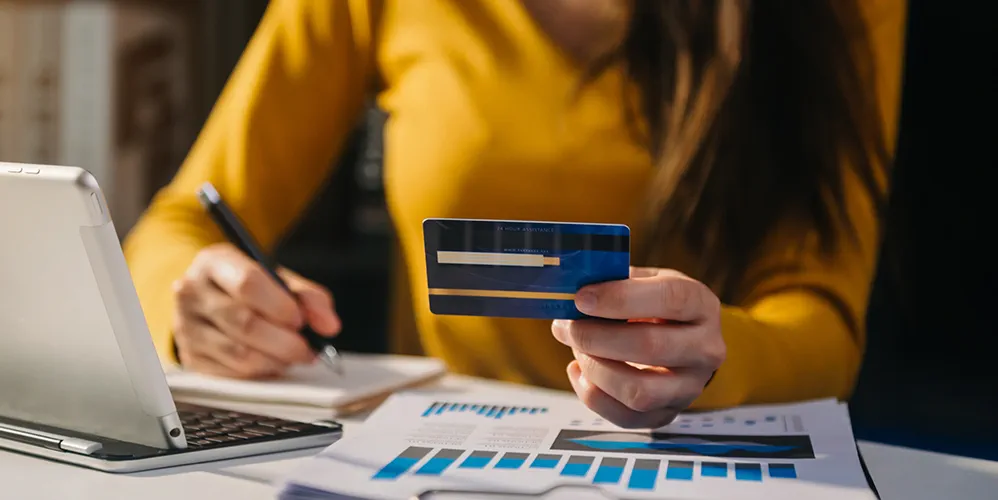
Table of Content
-
What is a Debit Card?
-
How a Debit Card Works?
-
Eligibility to avail of a Debit Card
-
Documents Required for a Debit Card
-
What Are the Fees Associated with Debit Cards?
-
What should I Look for in a Debit Card?
-
How to Prevent Debit Card Fraud?
-
How To Use Debit Cards Wisely?
-
How to Change ATM Pin?
-
Important Debit Card Terms
-
Bottom Line
A debit card is a banking instrument that helps customers to make safe and easy payments from their savings account. Releasing customers from branch visits for simple cash withdrawals for payments, the debit card performs a plethora of cashless transactions. ATM withdrawals, card swipes, and eCommerce payments, you do not even need to carry cash when traveling abroad. Deemed better than credit cards, debit cards regulate overspending. Account holders are eligible for debit cards as soon as they open a savings account with the bank. A debit card is different from a credit card. Let us help you with complete insight into debit card meaning, debit card eligibility criteria, features & benefits of debit card , and much more.
What is a Debit Card?
With a debit card , you can buy goods and services, you can withdraw cash from an automated teller machine, or ATM, and make cashless payments on purchases. Debit cards when used for withdrawing cash from ATMs, are subject to fees if not affiliated to the card. The difference between a debit card and a credit card is, you spend the money from your available balance unlike a credit card which works on debt. Visa, Mastercard are RuPay are the most common types of debit cards used in India. When paying from your debit card, you enter a Personal Identification Number (PIN) which is your secret code, never to be divulged to anyone, not even your bank. Your transaction is authorized once you enter the pin which is the key to permit the transaction.
How a Debit Card Works?
The debit card is a rectangular-shaped plastic or metallic card linked to the user's bank account. These are 16-digit cards with a three or four-digit CVV code unique to the account holder. The spending capacity is directly linked to the account holder's account size, that is, the number of funds that the savings account holds. Every debit card has a date of expiry listed against the phrase 'valid thru ‘including the month and the year (MM/YY), displaying the validity period of the card. The bank supplies a new debit card before the card expires. Debit card eligibility criteria are linked to fresh account opening. Issued by major card payment processors like Visa, RuPay, Mastercard, etc., the debit card draws funds from the affiliated account and is limited to the cash available in the account. Account holders are informed of debit-on-card transactions through an SMS on registered mobile numbers. Debit card limit on purchase is for 24 hours. Some cards with major processor logos work on contactless technology, i.e., without entering the PIN by either tapping or holding the card over the machine, the transaction takes place.
Eligibility to avail of a Debit Card
Debit card eligibility is linked to the savings or current account . Whenever you open an account, you are automatically eligible to a debit card. Other eligibility factors include the individual needs to be a citizen of India, should be 15 years or above, and the bank requires a valid identity and address proof approved by the government. Individuals need to fulfil the minimum balance requirement depending on the bank. Debit cards have a minimum annual maintenance charge deducted from the account depending on the bank or the variant of the bank.
Documents Required for a Debit Card
The documents required for opening a bank account will help in procuring a debit card. No additional document is required. When opening an account, the bank requires certain documents from individuals, RBI mandates a KYC for any account holder, and banks not adhering to this guideline are penalized by the RBI. The standard list of documents required for debit card include:
- Identity proof: Passport, Driving license, Voter ID card
- Address proof as per the passport, driving license, or Voter's ID Card.
- Pan Card
- Form 16 if the PAN card is not available
- Two latest passport-size photos
Also Read: How To Apply For A Debit Card: Step-by-Step Guide
What Are the Fees Associated with Debit Cards?
The following factors can incur debit card fees:
- If the cardholder makes an overdraft
- If the cardholder uses an ATM out of the bank's network
- Every card has a yearly interest of Rs 100 to Rs 500 depending on the bank's policy. Some banks issue interest-free debit cards
- If the card is replaced, lost or damaged
- For duplicate PIN generation
- Transaction from other ATMs, exceeding free transaction
- Cross-currency markup, debit card balance checks, and cash withdrawals using the debit card in foreign countries
- Exclusive feature on personalized photo etc.
- Purchases from debit cards
What should I Look for in a Debit Card?
In our world, if we think of something as powerful as cash, we can safely say it is a debit card. While you are cautious about spending your hard-earned money, you should know a few things about handling your debit card.
- Ensure that you always keep your PIN private
- When making payments, do it from secure platforms
- When making payments in POS, apply the cautions suggested
- Get into the habit of checking account information and balance frequently
- Examine all the money that comes and leaves your account. In the case of unauthorized transactions, be prompt to inform the bank
- Handle the card with care, keep the card away from sharp and magnetic objects.
- Make it a habit to change the ATM PIN regularly
- Dispose old debit cards properly
- Register your mobile for transaction alerts
How to Prevent Debit Card Fraud?
Even if the debit card acts like cash, it is better than cash. You don't need to panic if the card is stolen or misplaced. Just inform the bank by either calling customer care or block the card from the mobile app or online portal. If you have misplaced the debit card, the bank can freeze the card on request.
- Stay away from unidentified and unknown portals when making online payments unless you are sure of their authenticity
- Card reading instruments that seem damaged, mismatched or ill-fitted must be avoided
- Avoid accessible outdoor kiosks for withdrawing cash as these kiosks can have hidden skimmers to leak debit card credentials
- While making payments through your debit card, ensure it does not leave your sight. In merchant shops and restaurants, always keep an eye on your card
How To Use Debit Cards Wisely?
Debit cards must be used according to the technology, you can swipe or insert them into a machine.
- When you are using a debit card in an ATM, remember to follow the screen instructions
- Select the language of preference
- Select your account type
- Select your required service
- Enter your 4-digit PIN Number
- For doing a cash withdrawal, enter the desired amount and proceed with transaction
- Collect the cash and debit card from the machine after the transaction
At the PoS (Point of Sale)
- The card is either inserted or swiped in the card reading machine
- The POS operator will enter the transaction details
- You need to enter the PIN to authenticate the transaction
- Press 'Enter' and wait for the transaction to complete and the slip to be generated
- Sign in and keep the copy
- Never throw it without tearing it
Debit Card Online
If accessing online payment
- Enter the cardholder’s name
- 16-digit card number
- Expiry date and CVV (Card Verification Value) number
- The user is directed to another page, after the entered information is validated
- Enter your PIN or unique password set for authenticating the payment
- OTP (Time Password) on registered mobiles is generated, on a few transactions
- Tokenise your card for increase safety
How to Change ATM Pin?
ATM pins can be changed from the banks’ ATM or through net banking or mobile banking.
- ATMs (Automated Teller Machines) deploy Value Added Service (VAS) supported by NFS (National Financial Switch) of NPCI (National Payments Corporation of India) enabling, PIN changing
- Once the account holder logs into an ATM, various options that include PIN changing are displayed on the screen
- Click the option of Change/Reset PIN
- Enter the new PIN
- An OTP confirmation will appear on the registered mobile number
- If you forget the pin, inserting the card and clicking on ‘Forgot PIN’ will send an OTP
- Use the OTP to generate a new PIN number
- Once done, you will receive a message stating the success of your PIN change
PIN change through Net Banking
Ensure you have an activated net banking service
- Log in to the net banking account to ‘Change/Reset PIN’
- You will be required to enter the existing old PIN, and then enter the new PIN to confirm
- An OTP will be sent to the registered mobile number
- Once done, you will receive a confirmation notifying your success
- Change PIN from the Banking App
- Enter the old PIN
- Enter the new pin
- Confirm the PIN
- You will receive an OTP for authentication
- A message will appear on the success of your changed PIN
Important Debit Card Terms
Debit cards come with a set of terms and conditions that must be read before usage. While most banks offer wide set of terms and conditions, here are a few that every consumer should be aware of.
- A debit card can be from MasterCard/Visa/RuPay Debit Card issued by banks
- The cards are directly linked to one’s account.
- The debit card fees are deducted from the primary account holder
- The cards are subject to various rules
- The PIN issued to the cardholder is strictly confidential and non-transferable
- Cardholders must maintain sufficient funds while transacting through their debit cards
- The debit card is valid till the last day of the expiry date and will be automatically reissued by the bank
Also Read: Bank of Baroda Debit Card Offers
Bottom Line
Debit cards play a huge role in digital banking and payment is simple and straightforward through this instrument. Aiding both cash handling and cashless transactions, the debit card offers the holder flexibility and freedom to handle their fund as they like. Unburdening the physical wallets, these plastic cards usher in the smart technology in today’s age. Technology is growing rapidly, and fund management and payment has acquired greater dynamics. However, amidst all these transformations, the user must keep updated and aware of the fast changes, especially in banking technology, to make secure, and full use of them.
Popular Articles
Guide to Getting Agriculture Loan: Application, Eligibility & Required Documents
Tag Clouds
Related Articles

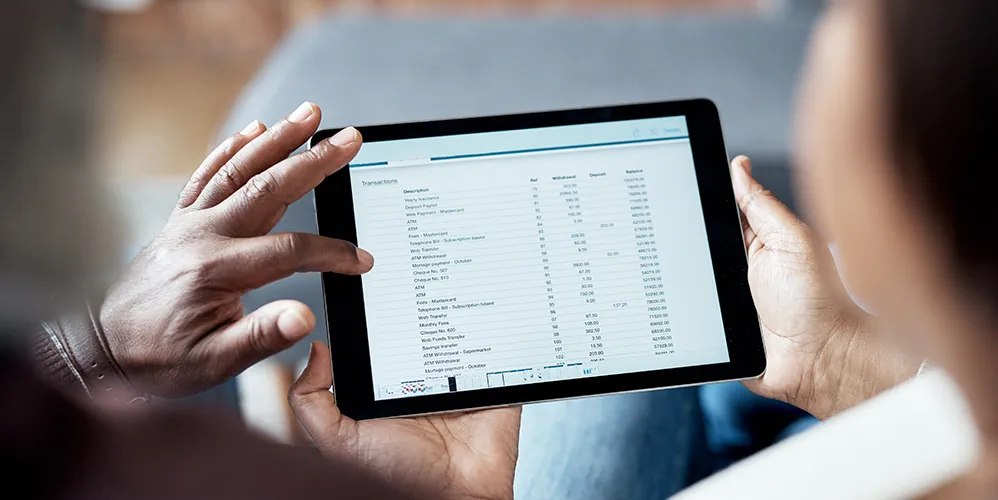
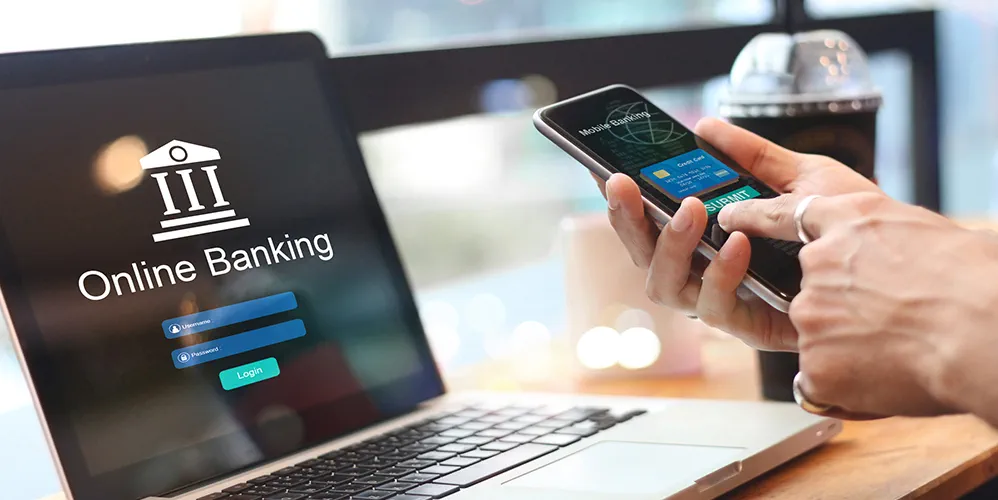

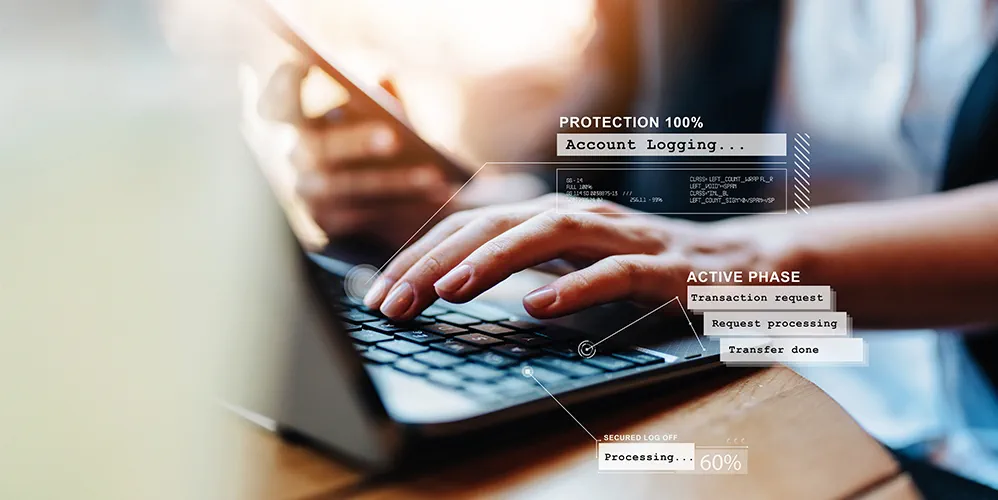

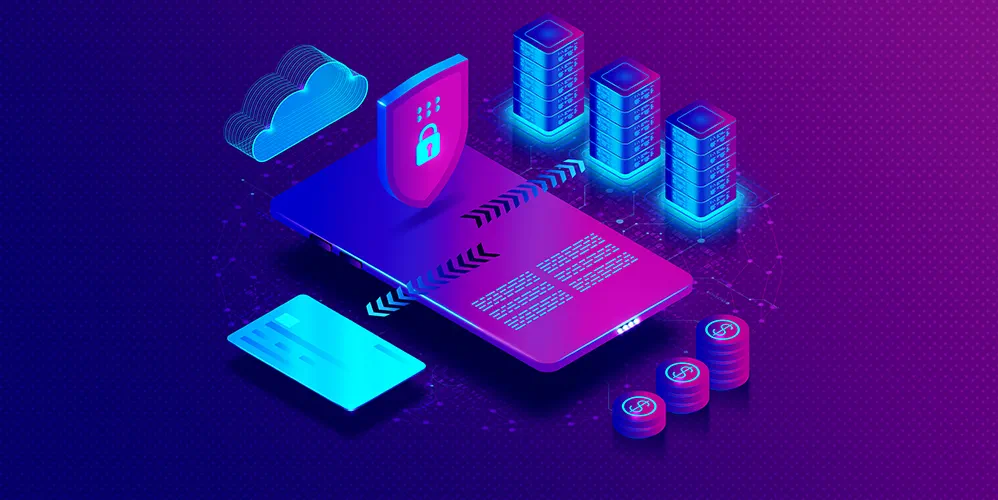
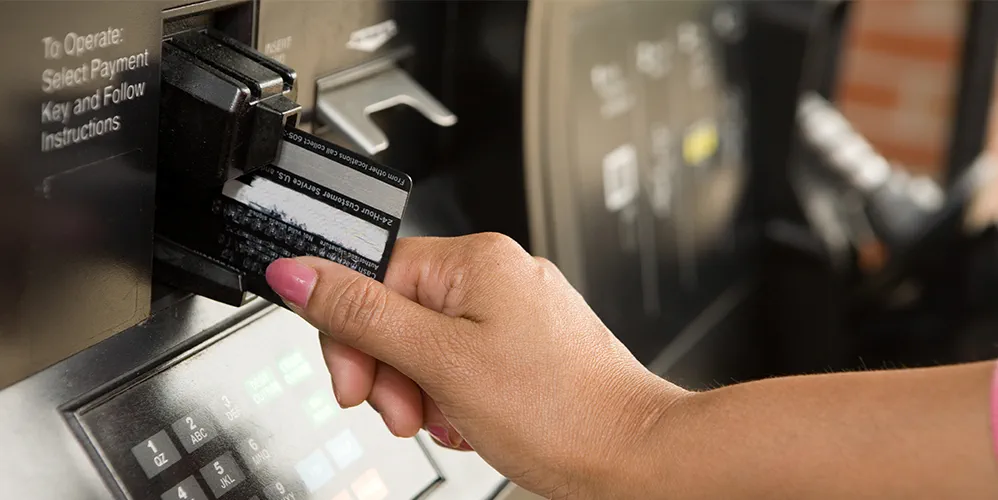


-
Disclaimer
The contents of this article/infographic/picture/video are meant solely for information purposes and do not necessarily reflect the views of Bank of Baroda. The contents are generic in nature and for informational purposes only. It is not a substitute for specific advice in your own circumstances. Bank of Baroda and/ or its Affiliates and its subsidiaries make no representation as to the accuracy; completeness or reliability of any information contained herein or otherwise provided and hereby disclaim any liability with regard to the same. The information is subject to updation, completion, revision, verification and amendment and the same may change materially. The information is not intended for distribution or use by any person in any jurisdiction where such distribution or use would be contrary to law or regulation or would subject Bank of Baroda or its affiliates to any licensing or registration requirements. Bank of Baroda shall not be responsible for any direct/indirect loss or liability incurred by the reader for taking any financial decisions based on the contents and information mentioned. Please consult your financial advisor before making any financial decision.
All about Net Banking: Meaning, Features, Advantages & Registration
Net Banking also known as Internet Banking, is a digital method to conduct banking transactions by the means of the internet, it is a time savvy facility offered by all standard banks. Individual can conduct banking activities from home through their smartphones, tablets, laptops and desktops. Net banking is a 24*7 facility which facilitates checking account balance, making fund transfer, managing debit and credit cards, opening fixed deposit and recurring deposit account, paying bills, doing online shopping, ordering chequebooks, buying general insurance, and much more.
Bank of Baroda Debit Card Offers
Debit cards have become powerful banking instruments that have gone much beyond simple cash from teller counters. Amped with a plethora of services, debit cards are loaded with rewards. You should check out the wide option of debit cards offered by the Bank of Baroda. Meeting the standards of your lifestyle, and reaching out to the exact customer demands, the debit card permeates its reach to clothes, food, lifestyle, health, travel, etc. Making life easy, the Bank of Baroda debit card offers owners pride with the wide array of facilities attached to them.

